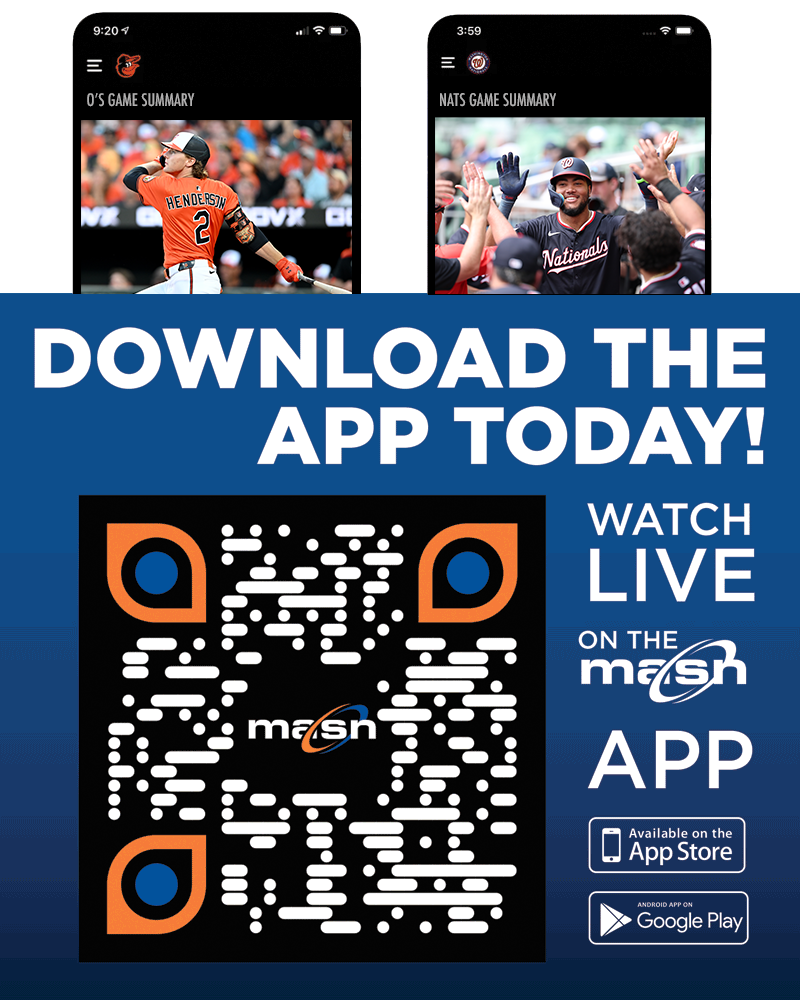Cole Henry wasn’t sure if the opportunity would ever come. He wasn’t even sure his baseball career would continue following thoracic outlet syndrome surgery in August 2022, just two years after the Nationals made him their second-round selection out of LSU in the 2020 MLB Draft.
But after a long road back, the right-hander was cleared to resume a normal baseball workload, leading to his major league debut on April 13 in Miami. Unfortunately, Henry’s rookie season came to an end over the weekend when he was placed on the 15-day injured list with a back strain with exactly 15 days left to go in the season.
“Yeah, it was pretty tough,” Henry said ahead of Tuesday’s split doubleheader against the Braves. “Obviously, you don't want to end that way at all, but sometimes it's just like that. It's been a long year. It's something that my body really hasn't been through before, so it just kind of happened at the end of the season, which if it were to happen, I'd rather happen now than at the beginning. So yeah, nothing major. I'll be good for a normal offseason. But yeah, it's been a great year. I felt like I had a pretty solid season. I'm just trying to look to get better this offseason. Kind of figure out where I need to improve and work on those things. And then come back next year ready to roll.”
Given Henry’s injury history with thoracic outlet syndrome, the back strain actually came as good news for the 26-year-old, who doesn’t require a serious rehab plan for the offseason and instead will just focus on strengthening for an increased workload in 2026.
“Yeah, definitely. It's nice to know that I won't have to rehab in the offseason at all,” Henry said. “Just kind of working on a couple of things and keeping my body in shape and ready to take on a bigger workload next year. So yeah, just normal wear and tear stuff that just happens throughout the season. And yeah, I'll be ready next year to go.”
Henry ended his rookie campaign 1-2 with a 4.27 ERA, 1.424 WHIP, 52 strikeouts, 32 walks, 11 hit-batters and two saves in 52 ⅔ innings over 57 relief appearances. After being switched to a full-time reliever in spring training, his major league career got off to an impressive start with only five earned runs (all coming in one appearance) in 22 ⅓ innings for a 2.01 ERA over his first 20 games.
The increase in workload, however, may have been the most impressive progress Henry made this year after only pitching 81 ⅓ innings in 31 games (24 starts) over his last three minor league seasons.
“Yeah, I was super pleased with how it's gone so far,” he said. “I felt really good all season. I think just transitioning from the starter role to the bullpen role kind of helped a lot as far as that goes with my arm and stuff. I like being out of the bullpen. I like pitching with that adrenaline and late in games and stuff. Definitely have some things to work on, but I was kind of learning on the fly the whole year.
“So it was cool to get this whole year's experience under my belt and kind of know what to expect next year, as far as different situations and how to approach everything in the right way. So I'm excited to hit the weight room hard this offseason and get back to it.”
Despite it ending early, Henry has a lot to be proud of when looking back at this season both as an individual reliever and the bullpen group as a whole. As one of the best relief corps in the majors over the second half of the season, Henry and Co. are looking forward to the young core returning next year and helping the Nats win more games.
“Yeah, I think that's definitely the plan. I think we're kind of just like a lot of the time just happy to be here. And I think next year we'll be more kind of set in stone coming into spring training and kind of knowing what our roles may be. And yeah, I think that just makes a big difference with us as players and as a team. We're coming back next year ready to win and ready to help our team win games, and hopefully the bullpen is a big part in that.”
The experience he and his fellow young relievers (and to a greater extent young position players, too) gained in the big leagues this year will pay dividends in 2026, when this group hopes to get back into the playoff picture.
“Huge,” Henry said. “Obviously, every day up here you're grateful for, especially earlier on in your career. It's just nice to be able to stick around and kind of gain that experience and be around the guys for a full season. Kind of figure out what it takes to be a good ballclub. We've had a lot of ups and downs this year, but I think we got a lot of stuff to build upon and got a good young core. I think we just all need to learn how to play together. And I think the more that we're around each other and get familiar with each other, I think the better it'll be.”




-1745819772711.png)

